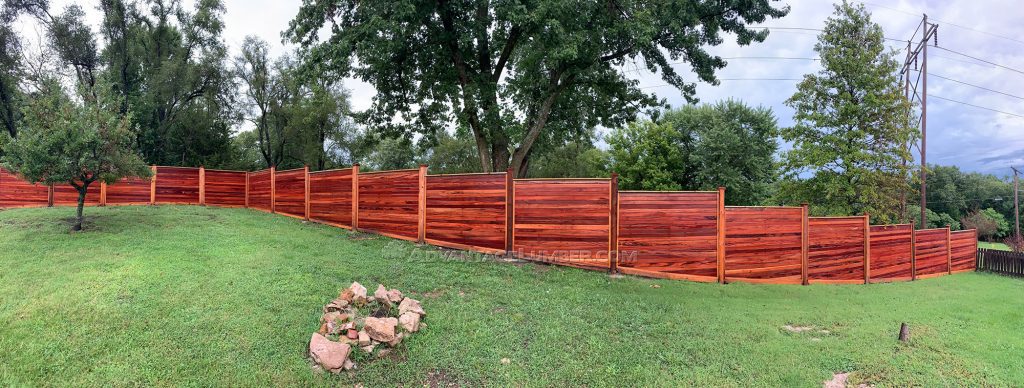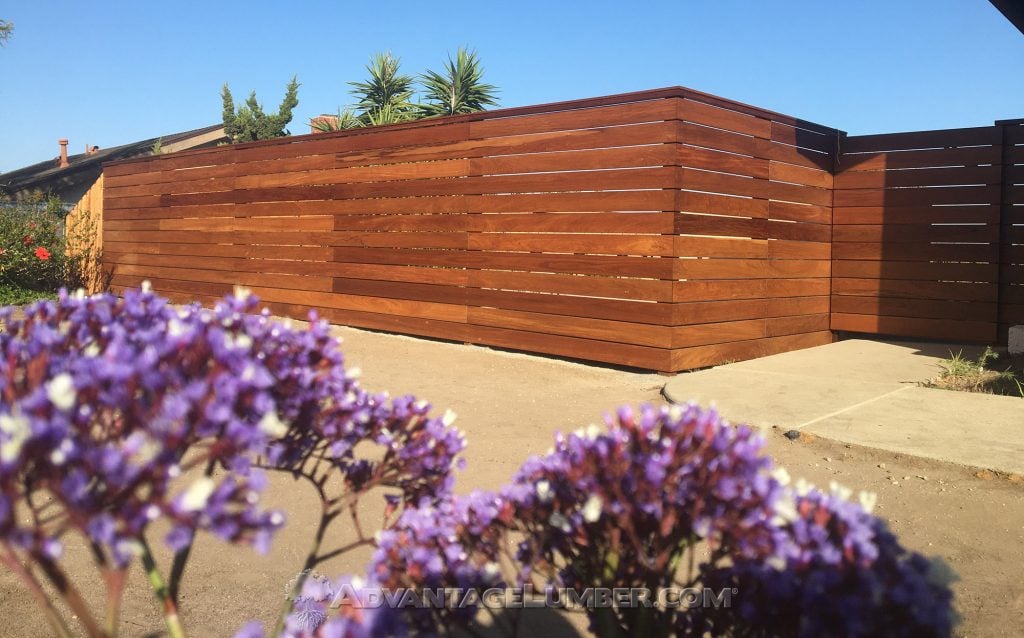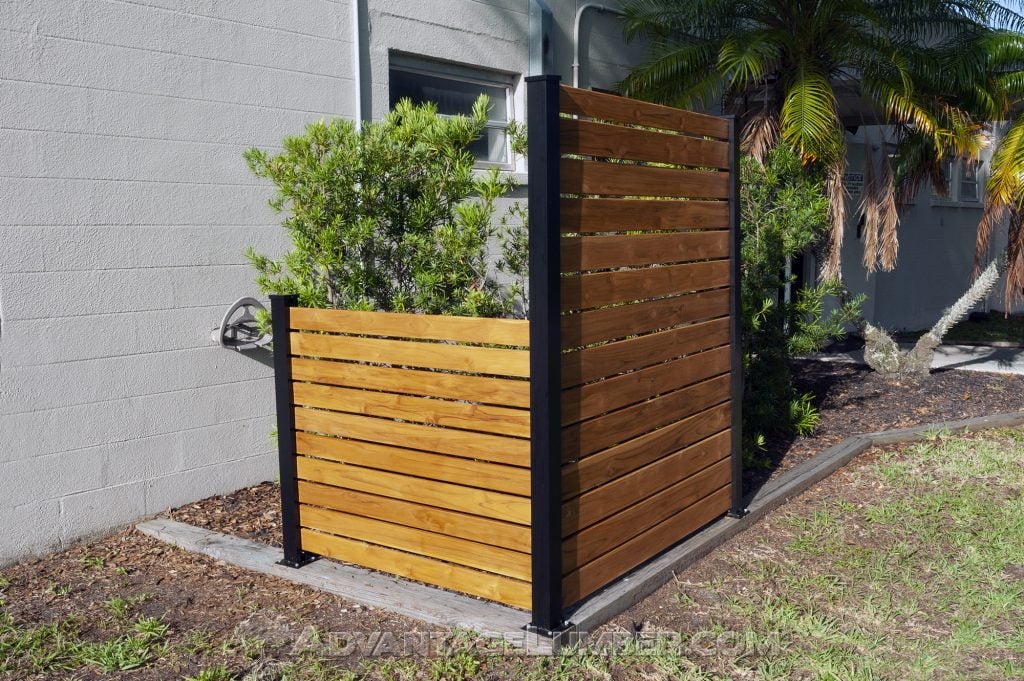In recent years, homeowners have been turning away from traditional vertical fencing towards a more contemporary option: horizontal wood privacy fences. This shift isn’t just about following a trend; it’s about embracing a design that is both aesthetically pleasing and enduring.
Among the most sought-after materials for these fences are premium hardwoods like Ipe, Cumaru, Tigerwood, and Teak—woods known for their durability and stunning natural beauty.
Why Horizontal Fences?
Horizontal fences feature boards arranged side by side, creating a look that is clean and modern. This design lends a spacious and more open feel to landscapes, contrary to the more enclosed ambiance of vertical fences. The horizontal alignment also promotes a sense of continuity and flow in the yard, making it an excellent choice for properties with expansive landscapes.
Moreover, horizontal fences are versatile in design. They can be customized with varying board widths and spacing to create unique patterns that reflect personal style. The adaptability of horizontal fences means they can fit seamlessly into a range of architectural styles, from mid-century modern to contemporary rustic.
Premium Hardwoods for Longevity and Aesthetics
When it comes to choosing materials for a horizontal privacy fence, premium hardwoods like Ipe, Cumaru, Tigerwood, and Teak are top choices. Here’s why:
- Durability: These hardwoods are incredibly resilient and can withstand harsh weather conditions, pests, and decay much better than softer woods. Ipe, for instance, is so dense that it’s often referred to as ‘ironwood’ and has a lifespan of up to 75 years if maintained properly.
- Low Maintenance: Despite their initial higher cost, these woods require less maintenance over time compared to other materials. They do not need frequent staining or sealing because they naturally contain oils that keep them protected from moisture and sunlight.
- Aesthetic Appeal: There’s no denying the rich, vibrant tones and distinctive grain patterns of these hardwoods. They can elevate the look of any property, adding a touch of elegance and exclusivity.
Installation Considerations
Installing a horizontal fence with premium hardwoods requires precise craftsmanship. The alignment of the boards needs to be perfect to achieve the desired aesthetic effect. Additionally, because these woods are so dense, you must pre-drill all your screw holes and use only stainless steel fasteners, which can increase installation costs.
Homeowners should also consider the natural expansion and contraction of wood with changes in humidity and temperature. Proper gaps between the boards at installation will accommodate this movement and prevent warping or cracking.



Conclusion
Horizontal wood privacy fences using premium hardwoods like Ipe, Cumaru, Tigerwood, and Teak represent a perfect blend of form and function. While the upfront cost might be higher than other materials, the long-term benefits of durability, beauty, and ease of maintenance make it a worthwhile investment. As this trend continues to grow, more homeowners are likely to embrace these stylish and sustainable options for their outdoor spaces.